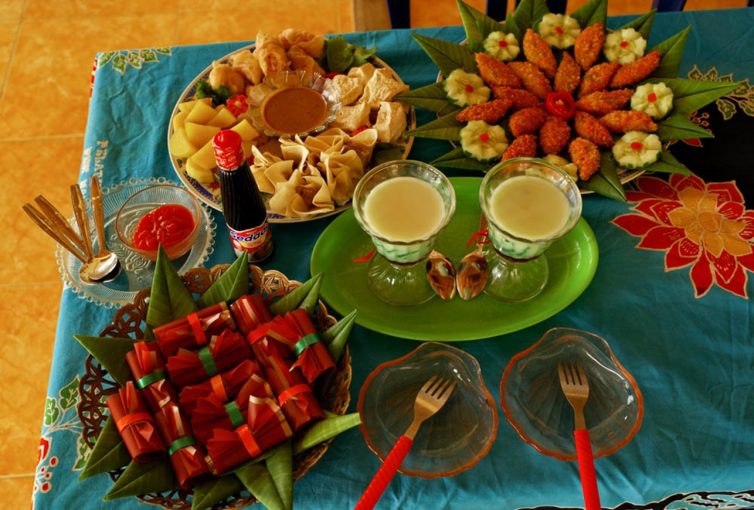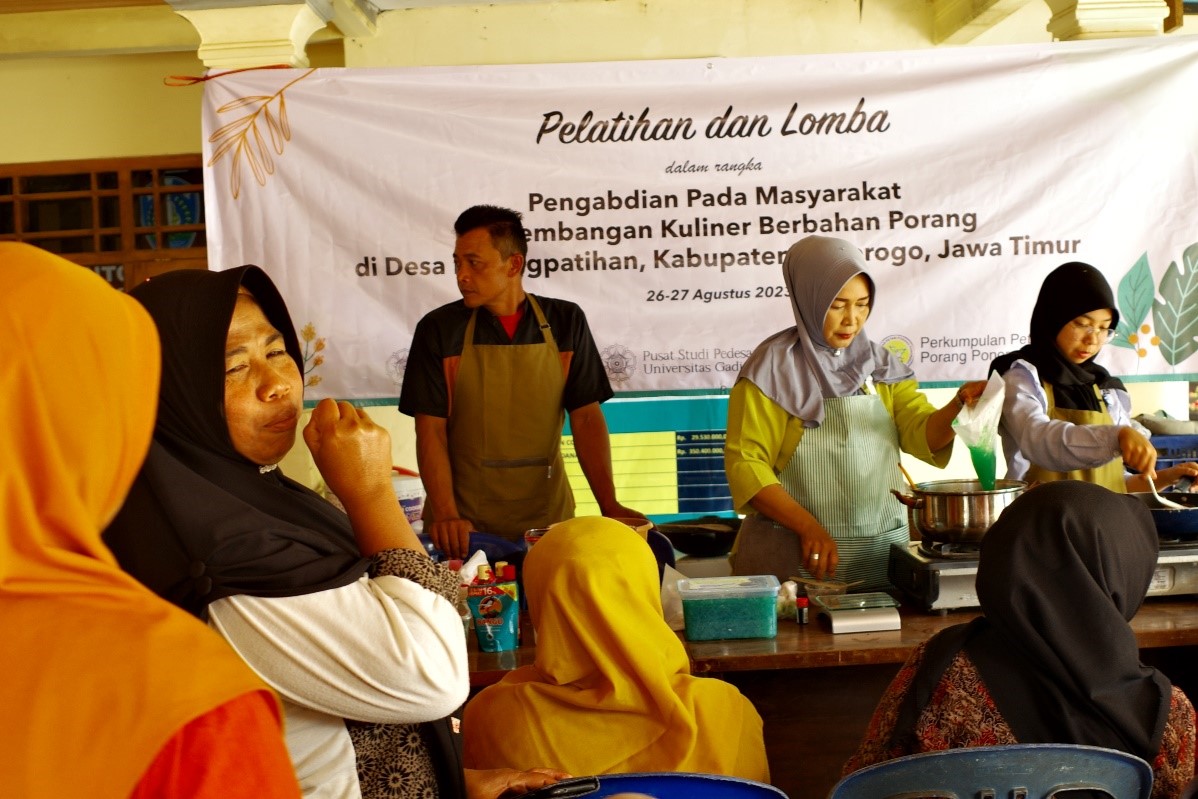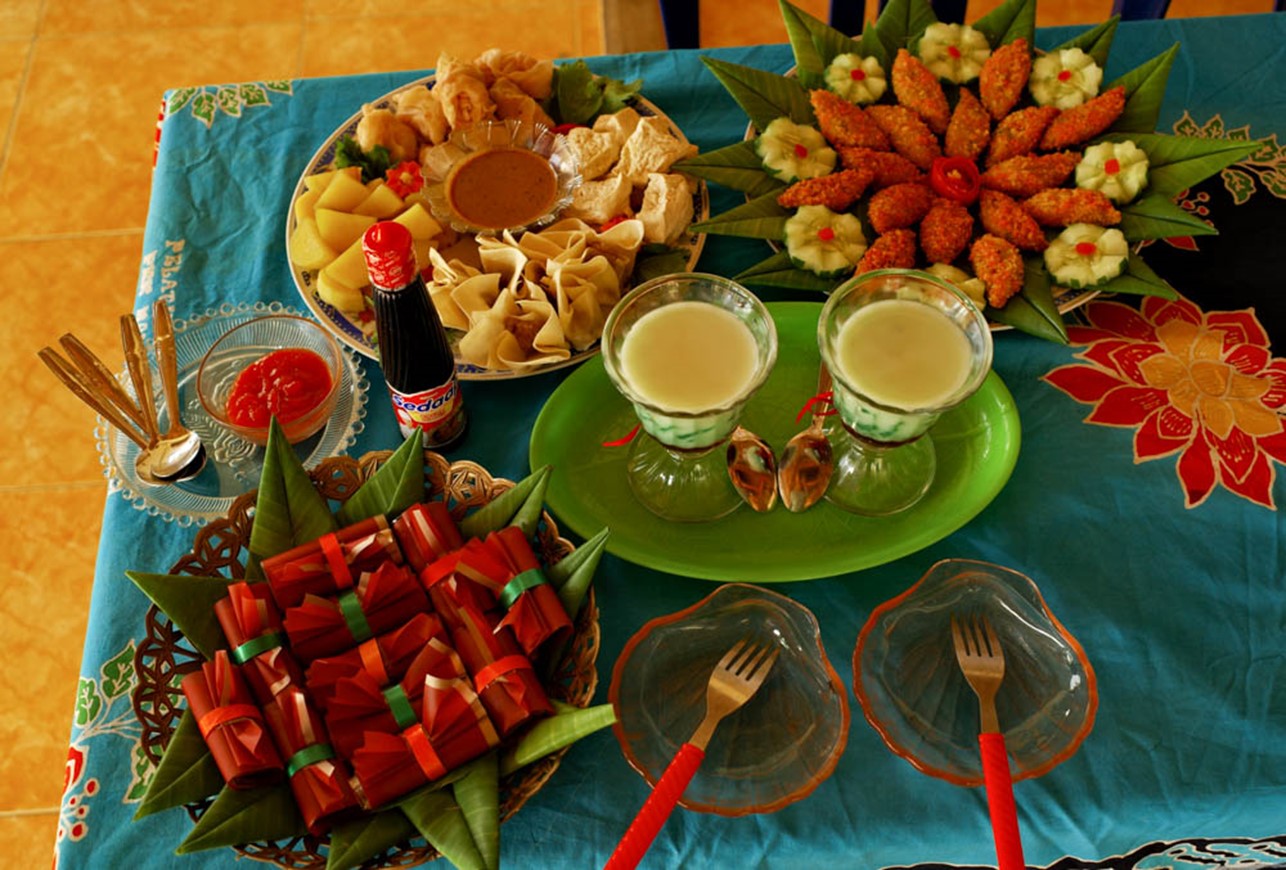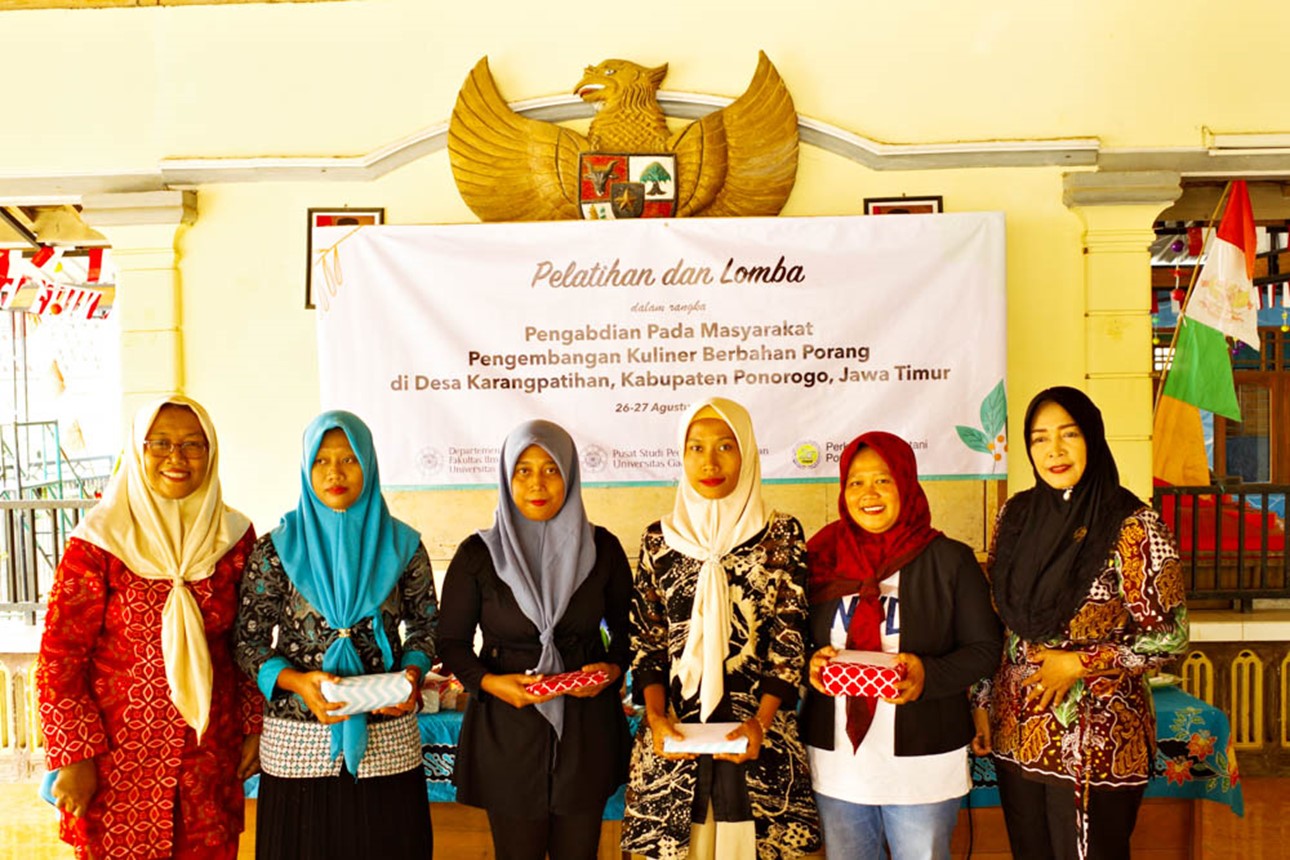
The current threat of a food crisis is being responded to by various parties. The development of alternative food such as the processing of konjac is being attempted by the Community Service Team of the Department of Anthropology. The team consists of Dr. Atik Triratnawati, M.A., Prof. Dr. Bambang Hudayana, M.A., Muhammad Zamzam Fauzanafi, M.A., along with two students named Eka Yuniati and Ferdy Azmal Fakhrani. This community service program is a continuation of the previous year’s program with the same theme, “Development of Konjac-based Culinary in Karangpatihan Village, Ponorogo Regency, East Java.” The continuation of the program took place in August 2023 in four hamlets: Krajan, Selodono, Dungus, and Jurugan.
Konjac, or in Indonesia is called porang, was chosen as an alternative food because it is a local Indonesian commodity which has great potential in the international market. For example, what has been done in Madiun, one kilogram of konjac can cost up to Rp. 14,000. One hectare of fertile land can produce around 80 tons of tubers for one harvest within two years. One of the most popular products made by konjac is shirataki rice, which has a high selling price. Konjac grows a lot in Ponorogo and there is one of the programs initiated by the Ponorogo Regional Government which aims to provide stimulants in the form of seeds and supporting the existence of a konjac farmer association. Other than that, Perhutani, which is a State-Owned Enterprise in the Form of Public Company which focuses on the task and authority to manage state forest resources, also provides access to farmers to plant konjac around perennial crops. Based on this fact, the community service team conducted training assistance in processing konjac-based food. In addition, a cooking competition was also held to motivate the locals to be more enthusiastic in creating innovations related to this food recipe. Then the activity was closed with a focus group discussion (FGD) to listen to the aspirations of women who joined the family welfare movement (PKK) in the four hamlets, Karangpatihan Village, Pulung District, Ponorogo Regency. This program needs to be done because, until now, the society perceives that konjac can cause an itchy feeling. By implementing this community service program, the community will develop a new perspective that konjac has many benefits. Apart from that, we really hope that the dissemination of knowledge and skills can make konjac-based food into an alternative food in Ponorogo.

Image 1.1: Dawet porang: one of the konjac-based culinary that has been taught to the members of PKK in Karangpatihan Village, Pulung, Ponorogo

Image 1.2: Various kinds of konjac-based culinary made by one of the groups who participated in the competition.

Image 1.3: The winners of the development of a konjac-based culinary competition.

